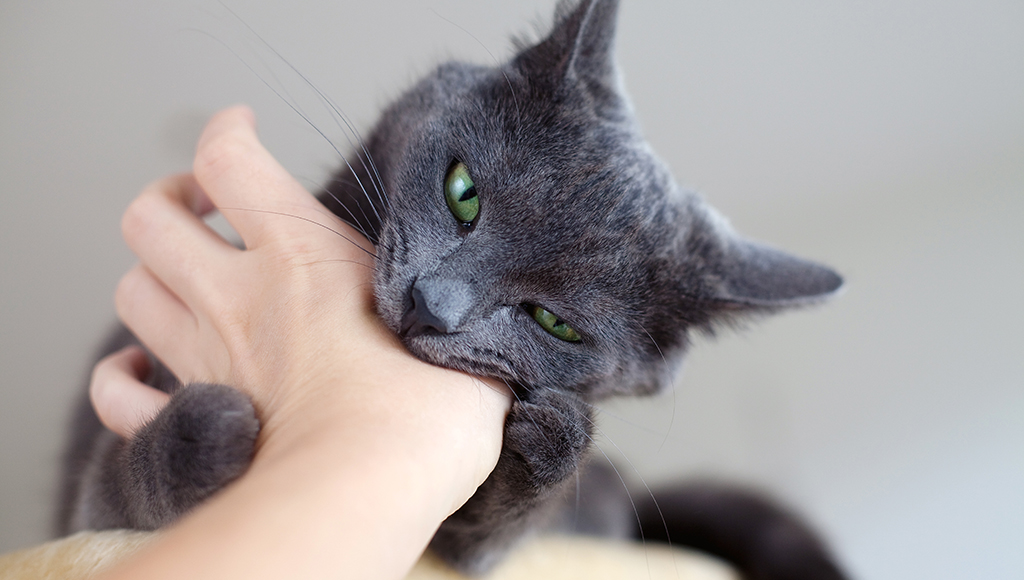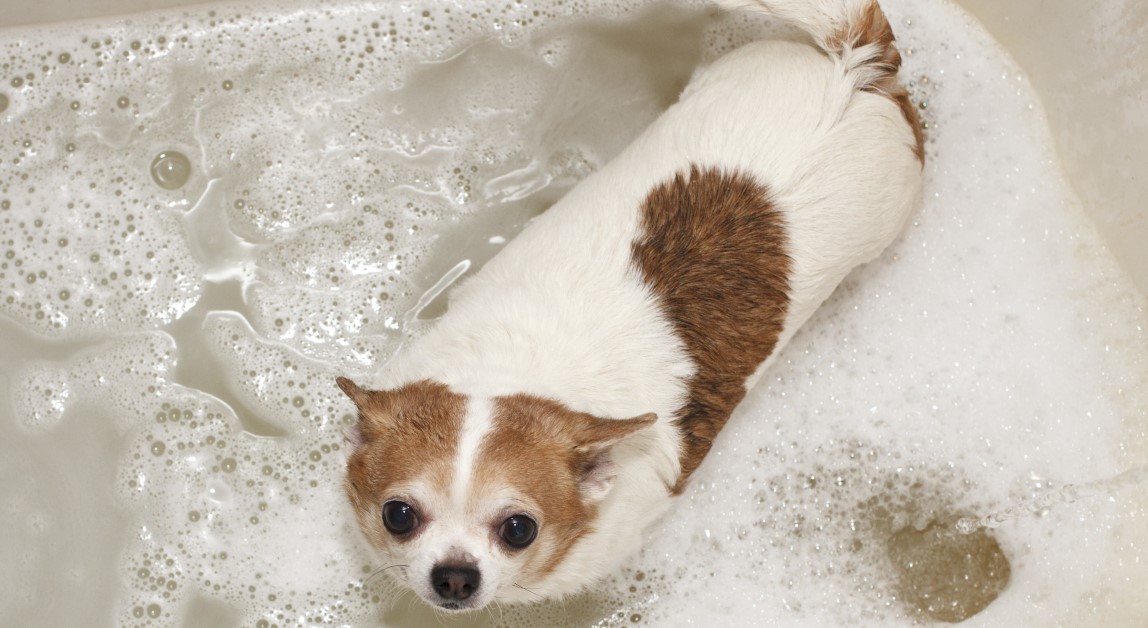When a Purr Becomes a Bite
Cat lovers understand how quickly a purr becomes a bite. Why do cats do that?

We all love it when our pets want attention and return our affection with a gentle gesture. A happy dog will wag its tail and lick your hand, while a happy feline will begin to purr contentedly as you stroke him. A dog will let you pet him for hours, but a cat will only tolerate it for a very short period of time; usually only a few minutes before it clearly lets you know it has had enough. How does a cat express to you that he has had enough of your affection? He usually bites your hand and/or swats at you with his paw and instantly leaps off your lap or jumps away from you.
There are different reasons that are agreed upon by cat behaviorists as to what causes cats to become so upset so instantly when they were happily purring and enjoying your caresses only a few minutes earlier. What are some of the things that may cause this to happen?
- A cat in your lap that has begun to doze while you caress it, will find itself momentarily disoriented when suddenly awakened. If the cat is not sure where he is at that moment and realizes your hands are on him, he may think you are holding him down rather than giving him affection. He will then fight to free himself from the situation. Most of the time when he jumps down, he will look confused for a few seconds and then begin to groom himself. This grooming is done to help him calm himself down.
- Normally nervous or sensitive cats tend to become somewhat jumpy and can easily become over-stimulated by petting for long periods of time. There usually are warning signs that something is about to happen and the cat may attack. Watch for restlessness, excessive tail movement, flattened ears, and the cat’s head turning toward your hand. It is important for us, as cat owners, to be alert to these signs and reactions and be ready to stop petting the cat before it reaches this stage of aggressiveness. At this time you may want to try giving the cat a small treat to let him know that all is well and he will not be harmed. Then also gently give the cat a few more strokes to gradually increase his tolerance toward this situation. Never punish the cat because he has bitten you as this may cause him to automatically become defensive whenever you pet him.
It is good to be aware of the areas that cats do not like to be stroked or rubbed. One area to avoid petting excessively is the stomach region. When we do this, most of the time it puts the cat on their back and in a very vulnerable position which they do not like at all and naturally will not tolerate without taking a defensive posture. A cat in this position will almost always have a natural defensive reaction which includes striking back by wrapping his paws around the person's wrist, holding on, and then biting. This is an attempt to make sure you know the cat will defend itself and view this sort of attention as aggressive rather than affectionate.
Cats will vary in how much they like being restrained, caressed or held by their owners or by other people. However, cats that don’t like being petted or held for a long period of time may still want to play with their owners. You may want to try and follow the cat around the house, carefully lay on the bed with them, and even sit close to them, in an effort to show them you like being close to them and have an attachment toward them. There are some cats that are huggable and loveable and others that are not, yet both types of cats can be very loyal and quite attached to their owners.
Ready to start saving money on pet wellness care?
Then take a look at Mint Wellness, the pet wellness plan that provides fast reimbursement on routine pet care. Save on vaccinations, wellness exams, preventatives, dental, and more!
Learn More


